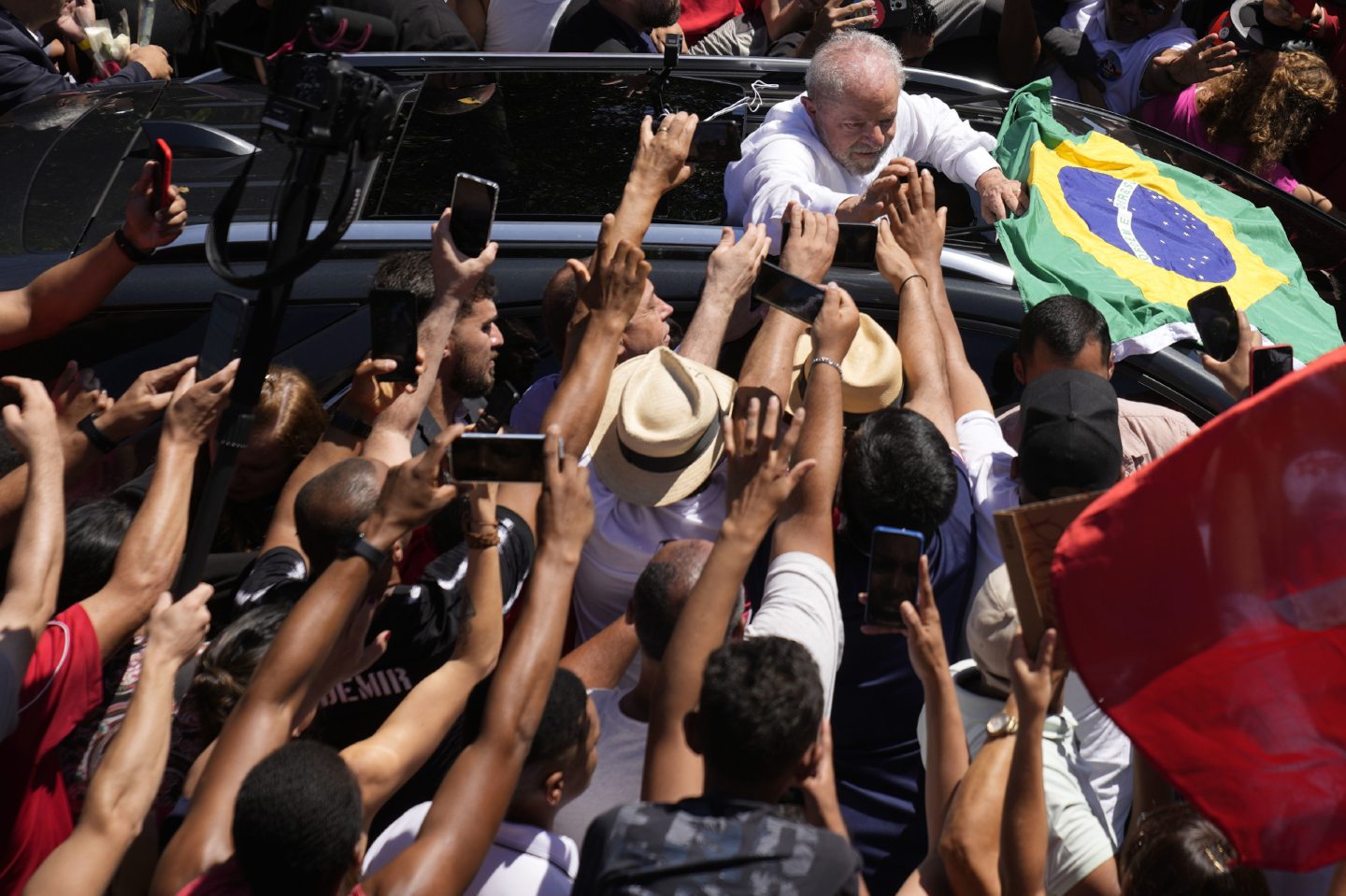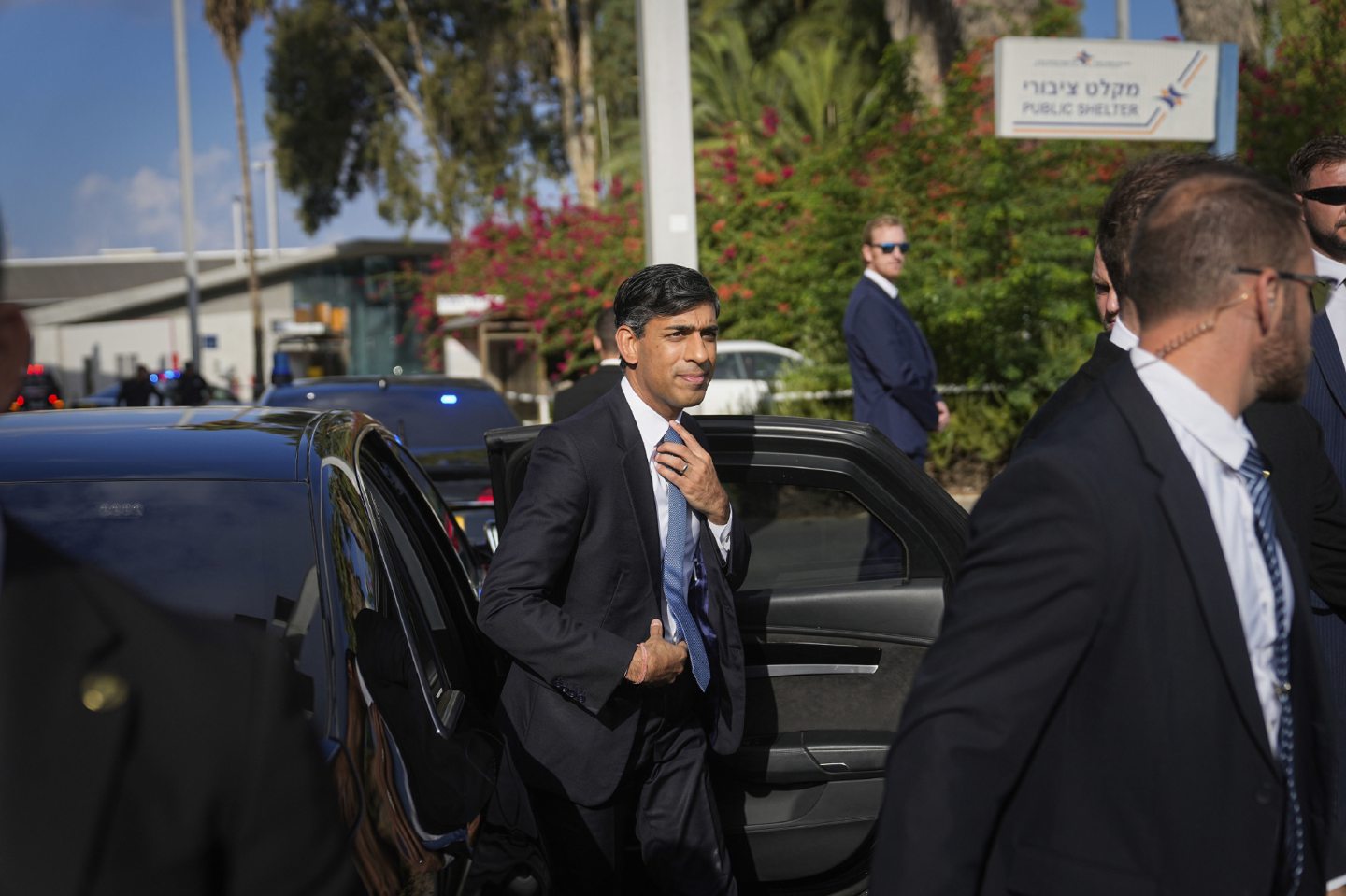There is an ongoing savage war and humanitarian catastrophe taking place in Gaza.
Fighting between Russia and Ukraine, the largest armed conflict in Europe since 1945, still rages. The COP28 climate summit failed to agree on a “phase-out” of fossil fuel use.
The cost-of-living crisis has made us all poorer. The grey, oppressive sky seems to be a permanent 10 feet off the ground, the sun a distant memory, and the dampness feels like it is creeping into our souls.
It is easy to be miserable about the world at this time of year. But, as we head into 2024, we should also look for reasons to be optimistic. It’s not all doom and gloom.
Last year was, indeed, a time of strife and difficulty, but it was also a period of progress. So, to cheer us all up, let’s look at some of the good things that happened in 2023.
Starting with the cost of living and the economy, inflation in advanced economies has fallen dramatically. UK inflation is now running at just under 4%, which is still above the official 2% target, but much better than the 11% it reached in 2022. The Bank of England expects inflation to continue to slow and be back to normal levels by the end of 2025.
Inflation rates in Europe have also fallen, and US inflation is currently sitting at around 3%. This reversion towards more normal levels has adjusted expectations on interest rates, meaning rate cuts are now expected. That’s good for mortgage holders. It is also good for asset prices like stock market shares, which rallied strongly in the final two months of the year.
‘The biggest conservation victory ever’
On the environment, COP28 might not have achieved as much as climate campaigners wanted it to, but elsewhere there have been positive developments. In Brazil, President Luiz Inácio Lula da Silva took to office last January, promising to end deforestation by 2030. He has ramped up resources for environmental enforcement, and the results appear to be dramatic. Brazil’s deforestation rate fell by over 50% last year: the largest single-year decline since records began.
Meanwhile, in March, 193 countries agreed the UN High Seas Treaty, a landmark initiative to protect the world’s oceans. The treaty covers almost two-thirds of the ocean that lies outside national boundaries, and provides a legal framework for establishing vast marine protected areas. Greenpeace described the treaty as “the biggest conservation victory ever”.
And, in November, the EU passed a new nature restoration law that aims to restore at least 20% of the bloc’s land and seas by the end of the decade.
Game-changing vaccines and treatments
We also saw significant progress in public health and medicine. In May, the World Health Organisation (WHO) declared that Covid-19 no longer represents a “global health emergency”. The rapid development and then deployment of effective vaccines during the pandemic stands as a testament to human ingenuity.
The innovation continues. In October, the WHO officially recommended the deployment of a new malaria vaccine developed by Oxford University and the Serum Institute of India.
Donanemab, the latest of the new treatments, slows the pace of Alzheimer’s by about a third
The low-cost, readily available vaccine, called R21, should be a game changer in the fight against the deadly disease.
Another potential game changer is the emergence of new drugs that slow the pace of Alzheimer’s disease. In July it was announced trials have demonstrated that donanemab, the latest of the new treatments, slows the pace of Alzheimer’s by about a third.
Remember – not every problem is a crisis
On the political front, populism and nationalism are on the retreat, at least in this part of the world. With a general election looming this year, the Conservatives under Rishi Sunak have tried to engineer all manner of culture wars in pursuit of a quick rebound in popularity. Polls show they are failing.
In Scotland, there was going to be another referendum on breaking up Britain in September, remember? Nicola Sturgeon promised it. Well, now she’s out of office, her party and the broader nationalist movement are in disarray amid ongoing scandal, and a general consensus is emerging that the splitting of our island into two separate states is decades away, if it ever happens at all. Liberal democracies, it seems, are built to endure.
So, as we dive into 2024, let’s keep in mind that not every problem is a crisis or existential threat requiring a full system reset. As the US academic and public intellectual Steven Pinker says in his book Enlightenment Now: “Don’t confuse pessimism with profundity: problems are inevitable, but problems are solvable, and diagnosing every setback as a symptom of a sick society is a cheap grab for gravitas.”
Our species has an incredible propensity for progress. If we keep the challenges we face in perspective then we can be optimistic about the future, even when the nights are long and the news reports dire.
John Ferry is a regular commentator on Scottish politics and economics, a contributor to think tank These Islands, and finance spokesperson for the Scottish Liberal Democrats



Conversation